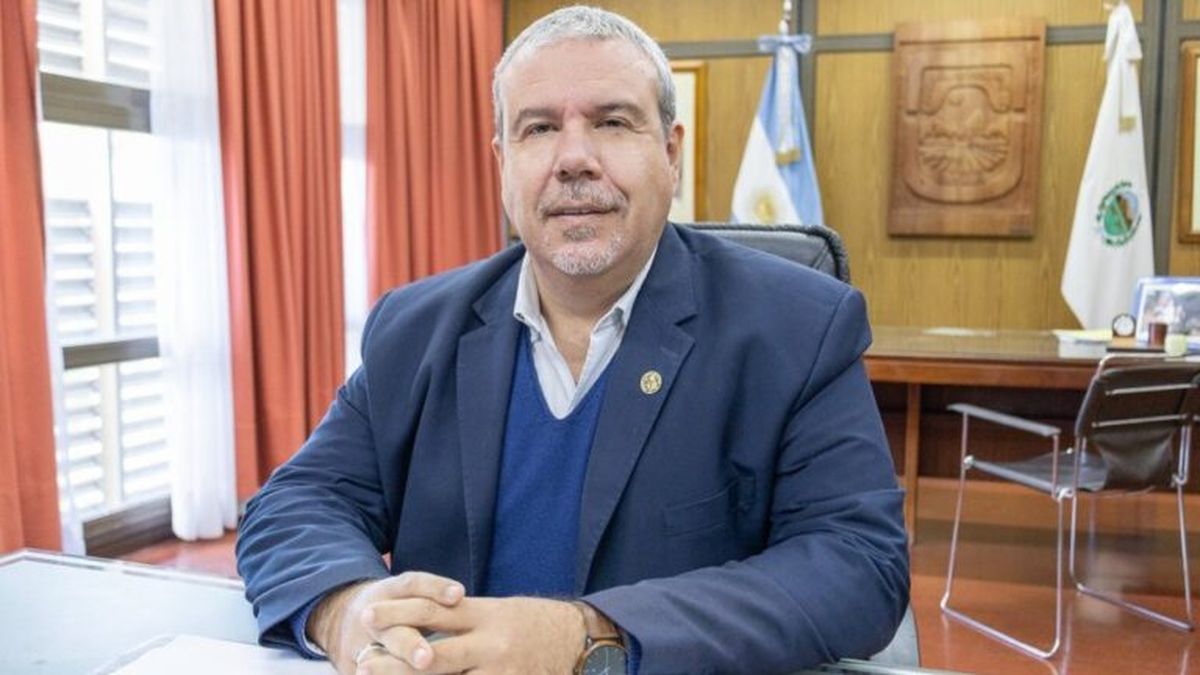The university students will seek to have the national legislators reverse the veto with two-thirds of the votes in each chamber. The rectors grouped in the National Interuniversity Council (CIN) and the teaching and non-teaching unions are preparing to give a “fight”.
In this sense, the President of the CIN Victor Moriñigo In an interview with Ámbito, he confirmed that they will meet at the CIN headquarters next Tuesday to outline the steps to follow. “For now, we will set a date for a new mobilization in defense of the public university like the one we carried out on April 23,” he said.
Journalist: The education financing law will be vetoed by President Milei, what do you think?
Victor Moriñigo: Let me hope that some advisor tells President Milei that the Education Financing Law can be paid for with the fiscal surplus. University teachers and non-teaching staff deserve to match their salaries with inflation, so I ask the President to prioritize education. If this does not happen, the CIN decided to follow institutional channels to work hard to obtain two-thirds of the vote in Congress to ratify the law, which is the same as saying that the veto should not be ratified.
Q: Everything suggests that the radical legislators who supported the president’s veto of the Retirement Mobility Law will do the same with the Education Financing Law.
VM: We have to do the math. The Education Financing Law in the House of Representatives obtained 144 votes that were obtained in the early hours of the morning, therefore those who did not vote for it were not in the chamber. We are about 26 votes away from the 170. This means that although it is difficult, we are not that far away, especially considering that the public university has strong roots and the majority of national deputies must return to their provinces and explain why they voted against their university. They did not blush with the retirees and did not give explanations, but unfortunately the retirees do not have a union that brings them together and makes the legislators blush. There is a social consideration. That is why it will be difficult to raise one’s hand against the public university.
Q: President Milei announced that in this case he would go to court…
VM: I would humbly tell President Milei that he should build bridges to find a solution and, if the problem really is financing, I assure you that we can find a solution at a decision-making table. We must not forget that university teaching and non-teaching workers have lost 50 points compared to inflation and, if we look more closely, we have lost 20 points compared to other state employees. How do you explain to a university worker that his salary has such a difference with other state agent salaries? When one asks the national government, they do not know what to answer. One does not know if the government did not know, did not want to or could not resolve the issue. The question is that we reached September and that difference was not corrected. It is something inexplicable.
Q: Are you anticipating the realization of a mobilization like the one on April 23?
VM: Yes. Next Tuesday we will hold a meeting at the National Interuniversity Council with the participation of the teaching and non-teaching unions, when we will announce the date on which we will go out to defend the public university as we did on April 23.
Q: After the march, what happens next, if the national government has no intention of giving in?
VM: First, if I were the Government, after the march I would call the teaching and non-teaching unions and give them the 20 points difference that we have with the other state employees, then we would have to negotiate the difference of 30 points.
Q: After the march on April 23, when it granted 270% for operations, the government again closed the dialogue. Do you agree?
VM: It is true, he had it with the rectors, understanding that the 270% was not capricious, understanding that, for example, we did not have money to even pay for the services, and he had a dialogue after an unforced error which was to award the UBA in first place, leaving aside the other universities. Hopefully we have all understood this and found a diagonal to this issue because on top of that we have the 2025 Budget, which we have an indication of what it will be and which cannot be modified throughout the year.
Q: Does the Education Financing Law unbalance the fiscal front?
VM: No. The national government has a surplus from January to August that exceeds 2,000 million pesos and, with that surplus, it could pay for educational financing. It could also have taken the money from sustainable guarantees. That is why it does not want to solve the university issue. The government should understand that an ideological defeat is a political victory that gives a future in other fights that are of equal or greater importance than the university.
Q: What will happen in the second quarter?
VM: The second quarter has already begun, so beyond the veto or not, beyond obtaining two thirds of the vote in the House of Representatives or the concretization of an upcoming educational march, we must provide predictability and create some lifeline for the last quarter.
Q: Can you lose the year?
VM: I understand that it is not, and it will not be because the national government is giving us help but because of the commitment of teachers and non-teaching staff, their dedication to work and the vehicle with the students who need it so they don’t end up on the side of the road.
Q: Specifically, how much will the university budget be for 2025?
VM: We proposed 7.1 billion pesos and the national government projected 3.8 billion pesos, the difference of 3.3 billion pesos is the well-calculated salaries. With this forecast, what the national government is doing is locking the doors of public universities. In 2025, public universities will experience the same situation as in 2024, but with lower salaries.
Q: While public universities are discussing salaries and funding, private universities continue to grow…
VM: Private universities take university talents at a better salary price and perhaps do not control incompatibility as much as public universities do. This also happens to us with the scientific system in Chile and Brazil, which is beginning to tempt Argentine researchers with better job offers. There is also a disparity with universities in Brazil or Mexico. This disparity has existed for about 40 years, but we are at the same level in terms of academic level. Beyond the economic vicissitudes of the country, Argentine university students have always stood out above those of other countries.
Q: If you were face to face with Milei, what would you say to her?
VM: President, invite us rectors to a barbecue and we can tell you that universities can be at the disposal of your national project, whether we agree or not, but in the next three and a half years you are the President, we must generate empathy and I ask you to break down prejudices because the university is not what you have been told.
Source: Ambito
I am an author and journalist who has worked in the entertainment industry for over a decade. I currently work as a news editor at a major news website, and my focus is on covering the latest trends in entertainment. I also write occasional pieces for other outlets, and have authored two books about the entertainment industry.




